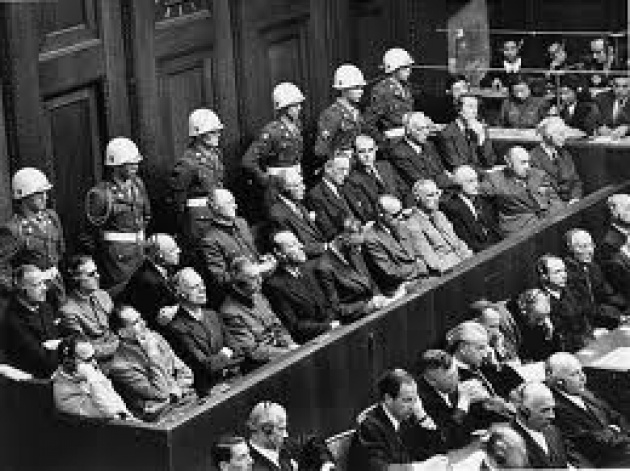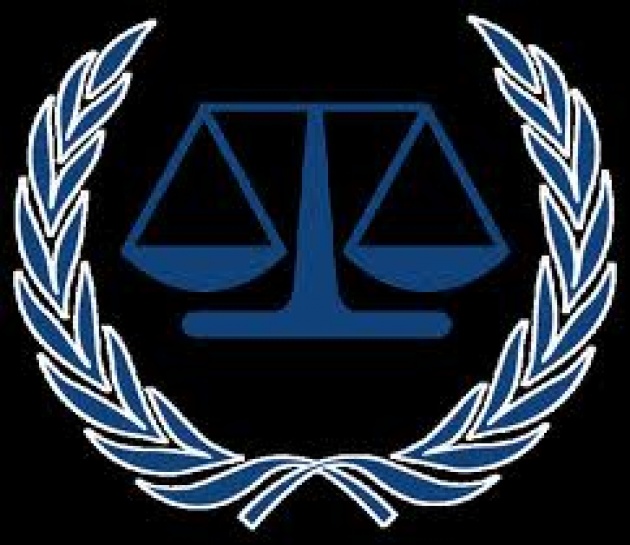By pure accident I recently found my two articles from 2012, concerning topics about international criminal law. The Articles itself aged very well. The topics are still very important and much of what I have assessed in 2012 seems to be on spot today.
The articles were originally published on the website “diplomaticallyincorrect”, which does not exist anymore.
Therefore, I would like to repost these two articles with some stylistic adjustments, since my English got somewhat better. 😉
Confronting with International Crimes inside of Balkan Societies
After Balkan’s last armed conflicts, its post-war societies faced a brand-new challenge. All of them had to address the process of social catharsis and to confront existence of committed international crimes during the war. Especially implementation of international criminal law concepts into their transitional law systems, as well as in social projects of reconciliation. All of this happend to be quite demanding. This is one of important reasons for slow restoration of the civil society in the newly formed nations.

The contemporary role of the International Criminal Tribunal for the Former Yugoslavia (ICTY) has been to secure criminal prosecution concerning various cases of human rights violations during the war. In comparison to WW2’s International Military Tribunal (IMT), ICTY has not been tasked to give any social judgment concerning destructive ideologies, except of criminal processing. This represents one of the greatest deficiencies in the whole process of reconciliation through modern international tribunals in general. If we analyse the legacy of IMT, its main social influence was post-war dissection of national-socialist movement. This allowed the emergence of enlightened self-criticism of the post-war German society. Such state of judgment enabled philosophical foundations for differentiation between destructive and prosperous social values. Without ideological condemnation by using (international) criminal instances, any possible re-emergence of progressive social compass in a post-war society would be difficult process, as well as emergence of self-criticism concerning violations of basic human rights. I firmly believe that “pure” or usual criminological approach in suchlike cases is inadequate to initiate the process of mutual reconciliation. To establish the connection between social condemnation of a destructive ideology and specific violations of human rights, all post-IMT tribunals should have proposed goals/abilities, also. Neither ICTY nor national criminal courts of Bosnia and Herzegovina (BiH), Croatia or Serbia have that role in their post-war efforts, since their main purpose has been formed on explicit judicial, not sociological, prosecution or clarification of international crimes. This is one of the reasons why destructive ideologies survived and stayed strong in these societies long after the conflict has ended.
If criminal courts could do as proposed, it would surely allow future generations to address their past unbiased and to be less susceptible to destructive political movements, pseudoscientific clarification of history, etc. These predispositions would be the main engine of future reconciliation. The IMT showed that suchlike social effects are very important and every future ad-hoc or permanent criminal court should have an ability to condemn and identify destructive political ideas, as ideological sources for crime preparation and execution. Of course, there are those who will say “such courts are not acceptable, because their modus operandi would open the door for censorship of basic human rights!”. They would be right if such competences were set to be used to affect e.g., freedom of speech regardless of any ideology. But the role of IMT, for example, was to judge a specific ideology which was directly responsible for vast violations of human rights. That should be a criterion for that kind of judicial activity and for its framework of competences. Every single fact which has a connection with war crimes should be impartially investigated, even if some of them could have a political notion.
All these reasons are affecting the whole process of reconciliation in Bosnia and Herzegovina (BiH), Croatia and Serbia (especially the process of catharsis inside the Serbian society). It is true that international criminal courts are giving good results, but these results are mainly in the criminological sense. As I said before, this offers very limited social effects within post-war society, despite of introduction of reconciliation projects such as Outreach. Facing international crimes should be directed more towards the restitution of national unity through raising of awareness concerning the existence of destructive movements inside of Balkan’s political reality. Some of them are thriving despite the fact that they were ideologically responsible for committed international crimes (analogue to the role of national-socialism in Germany). In such an environment it is hard for BiH ethnic groups to develop proper self-criticism and to depart from populist policies in order to recognize human rights violations as a danger to them all and not just to one specific group. Accepting political responsibility for the crimes is a step forward, but this awareness should not be demanded from only one ethnic group, but from them all. Criminal law in transitional justice of post-war societies should have explicit roles of separation between destructive and prosperous social values. The currently ongoing ICTY criminal cases are differently perceived by each ethnic group and their law professionals as well. There is a disagreement between them about the nature of the conflict and committed crimes, despite the fact that past and current ICTY activities should have united some of these views by now. Reaching for in particularly this goal is not possible within of any society where sectarian ideologies and politics are constantly polarizing each group. Bosnian, Croatian and Serbian legal experts differ in their views about whether a specific war crime occurred at all. These views are sometimes completely different from defined understandings of what actus reus and mens rea in respect to every international crime mean, especially concerning the crime of genocide.
All of this slows down the entire process of confrontation with committed international crimes in the Balkans; and at the same time, it disperses any possible positive effects made by international tribunals. Long-term goals of reconciliation are in these circumstances practically unreachable during a lifetime of a one generation, which is a rather grim conclusion.
Education as an Initiator of the International Criminal Law Integration

If we would ask the question “What influences individual nations to lean toward supporting ICC‘s worldwide enforcement?” there would be a large number of different responses, concerning conditions that shape the outcome of such answer. In contemporary science literature, many of these conditions are specified, as well as analysed in detail, and they form a very coherent and systematic whole which is becoming increasingly situated in the consciousness and practice of lawyers, sociologists, etc. However, just because scholars tend to accept und understand these requirements, it still not imply that this is an only group that shapes public relationship concerning the question of e.g., how to address committed international crimes in the long run and on global level. Some other conditions influence this process, but they are widely diverse and sometimes uncategorizable, from the perspective of their modus operandi. For example, the question about governmental political influence that possess a capacity to facilitate or obstruct the whole process. Obstruction does not only occur in the sphere of daily political public interference, but also as (sometimes hidden) long-term political strategy or agenda relating to detailed managing of future social relations. One such social policy that determines whether future support for ICC enforcement could be established, concerns educational system. An educational system possesses a capacity to mould possible future outcomes regarding public opinions, attitudes, critical and self-critical standpoints.
Many countries in the world use their educational systems to achieve different long-term goals. However, for many post-conflict societies this includes a process of relativization/denial of committed crimes, also. An example of such educational strategy is Turkish approach in dealing with the genocide against the Armenians in 1915. The official position of the Turkish government is that there were no crimes. Even if some crimes could exist, then they were committed e.g., out of self-defence. This consequently formed a national strategy with regard to the interpretation of Ottoman history. The Turkish educational system ignores this topic, or it simply misinterprets the historical facts in order to achieve confusion about victim-offender role. In addition, the expression of this attitude is reflected directly in Turk’s unwillingness to accept ICC’s criminal judicial authority as an international criminal court. The rejection of their own past and inconsistent confrontation with committed crimes resulted in fear of possible charges for genocide by the ICC. Turkey is not the only example of a failed post-conflict catharsis. This applies to the world’s greatest powers too, like United States, Russia, China etc. They use same method, more or less, to address the war crimes committed by their individuals or past governments. It is why the expansion of ICC’s judicial role in today’s global society appears to be in some sort of “standoff”.
In this respect, the level of national awareness concerning committed war crimes represents a condition for dealing with such crimes in the first place. In ultima linea this means that inadequate historical confrontation with the past in childhood and early adulthood results in the ambiguity in later adulthood concerning this sociological phenomenon. Consequently, there would be less social pressure directed towards authorities to address the past properly. Any development of cathartic political consciousness regarding the overall process of confrontation with committed international crimes and global criminal law integrations would decelerate even more. Still, there are some approaches that could help us to understand how education determines human behaviour in ideological sense. For instance, in the book “Antisemitismus Gesellschaftstheorie: Die Frankfurter Schule im amerikanischen Exil” Eva-Maria Ziege describes sociological research concerning intensity of anti-Semitism in relation to the level and degree of education. The analysis, among many others, emphasize the importance of information deficits that occur gradually during early education, as well as wrong methodological approaches to the interpretation and analysis of existing information pertaining to the question of anti-Semitism and similar.
I believe this type of research can also be implemented globally in terms of methodological approach to the analysis of diverse national perceptions concerning ICC’s role in today’s world society. To understand how early human development and education create predispositions for later readiness or unreadiness to address the existence of grave violations of human rights objectively, would surely demand an open and apolitically driven discourse between various political powers. Such an approach would give us a possibility to recognize elementary reasons concerning obstruction of global integration of international criminal law from the perspective of each nation/group and their education policies as well.
